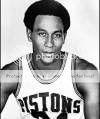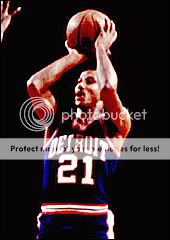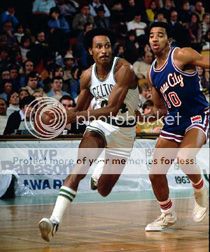It looks like you're using an Ad Blocker.
Please white-list or disable AboveTopSecret.com in your ad-blocking tool.
Thank you.
Some features of ATS will be disabled while you continue to use an ad-blocker.
0
share:

David Bing was born on November 24th 1943 in Washington DC. He grew up in the same neighbourhood that produced Elgin Baylor. But it wasn't basketball he started playing it was baseball. It wasn't until he attended Washington's Spingarn High School, where basketball coach William Roundtree encouraged him to take up the sport. In Bing's senior year he was one of seven players on the varsity squad to average double figures in scoring. Bing excelled in both baseball and basketball, but a scheduling conflict between tournaments in each sport forced him to make a reluctant choice. He opted for hoops and went on to be voted tournament MVP.
Bing started out at Syracuse University in the summer of 1965, his junior year. Bing chose Syracuse at the urging of Ernie Davis, a football All-American at Syracuse. Bing also confessed that he chose Syracuse partly because he doubted his own skills and thought his chances of standing out in college would be better in a lower profile basketball program. He struck up a friendship with Bill Bradley, who was not exceptionally athletically gifted. But Bradley really knew how to play the game letting his mind make up for his lack of athleticism. As a college senior Bing's game flourished,being the 5th leading scorer in the nation with 24.8 ppg. Bing's performance at Syracuse was hardly low profile. In three varsity seasons he averaged 24.6 points, earning All-America honors as a senior. Pro scouts buzzed about him, and the Detroit Pistons made him the second overall pick in the 1966 NBA Draft (behind Cazzie Russell).


To summarise up David Bing, he was not only one of the best players the NBA have seen, he was a leading example. Long gone are the visions of Bing driving it to the basket, his explosive game and his many battles on the court with the games top guards at the time. It earned him a spot in the Hall of Fame in 1990, a spot on the NBA's 50 greatest players list and in 1977 he won the J. Walter Kennedy Citizenship Award for his many contributions off the court. As founder of Bing Steel, he was named the "National Small Business Person of the Year" and "National Minority Supplier of the Year" in 1984. His number 21 jersey was retired by Detroit, and at the 1990 NBA All-Star Game, he received the Schick Achievement Award for his work after his basketball career.
Born: 11/24/43 in Washington, D.C.
High School: Spingarn (Washington)
College: Syracuse (1966 All-American)
Drafted: Detroit Pistons, 1966 (second overall)
Transactions: Traded to Washington Bullets, 8/28/75; Signed with Boston Celtics, 9/28/77 Height: 6-3
Weight: 185 lbs.
NBA Honors: Elected to Naismith Memorial Basketball Hall of Fame (1990); All-NBA First Team (1968, '71); All-NBA Second Team (1974); Rookie of the Year (1967); J. Walter Kennedy Citizenship Award (1977); One of the 50 Greatest Players in NBA History ('96).
Sources
Answers.com
Hoophall.com
NBA.com
new topics
-
WF Killer Patents & Secret Science Vol. 1 | Free Energy & Anti-Gravity Cover-Ups
General Conspiracies: 1 hours ago -
Hurt my hip; should I go see a Doctor
General Chit Chat: 2 hours ago -
Israel attacking Iran again.
Middle East Issues: 3 hours ago -
Michigan school district cancels lesson on gender identity and pronouns after backlash
Education and Media: 3 hours ago -
When an Angel gets his or her wings
Religion, Faith, And Theology: 4 hours ago -
Comparing the theology of Paul and Hebrews
Religion, Faith, And Theology: 5 hours ago -
Pentagon acknowledges secret UFO project, the Kona Blue program | Vargas Reports
Aliens and UFOs: 6 hours ago -
Boston Dynamics say Farewell to Atlas
Science & Technology: 6 hours ago -
I hate dreaming
Rant: 7 hours ago -
Man sets himself on fire outside Donald Trump trial
Mainstream News: 9 hours ago
0
